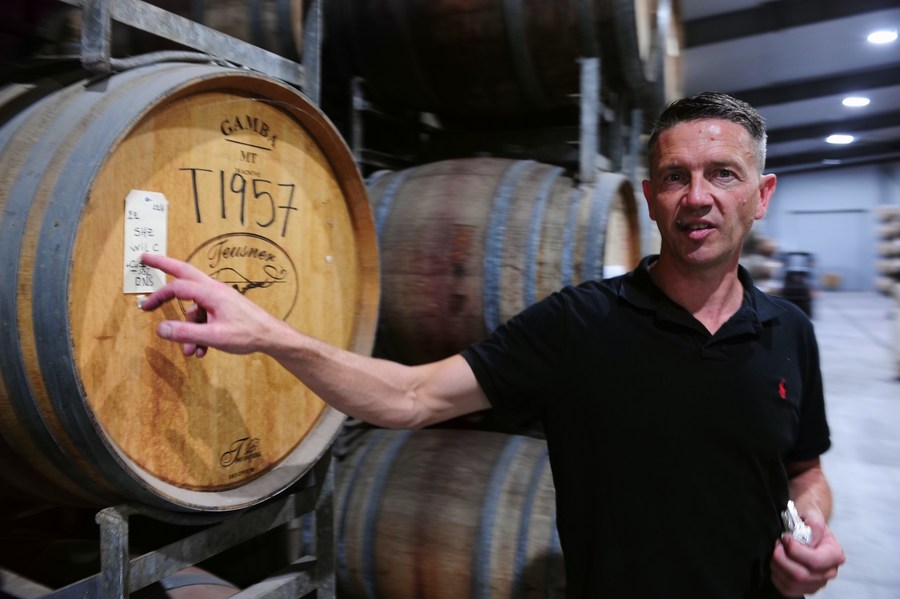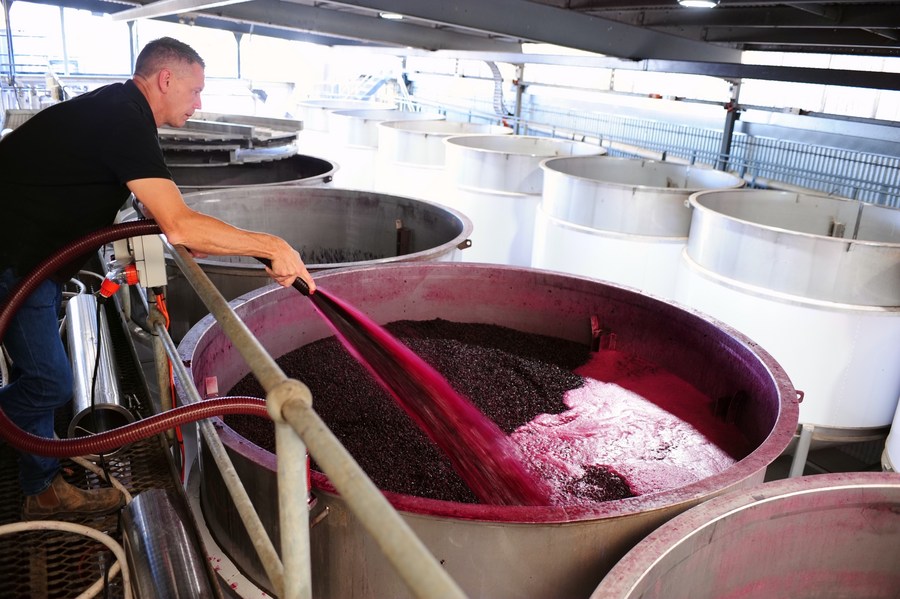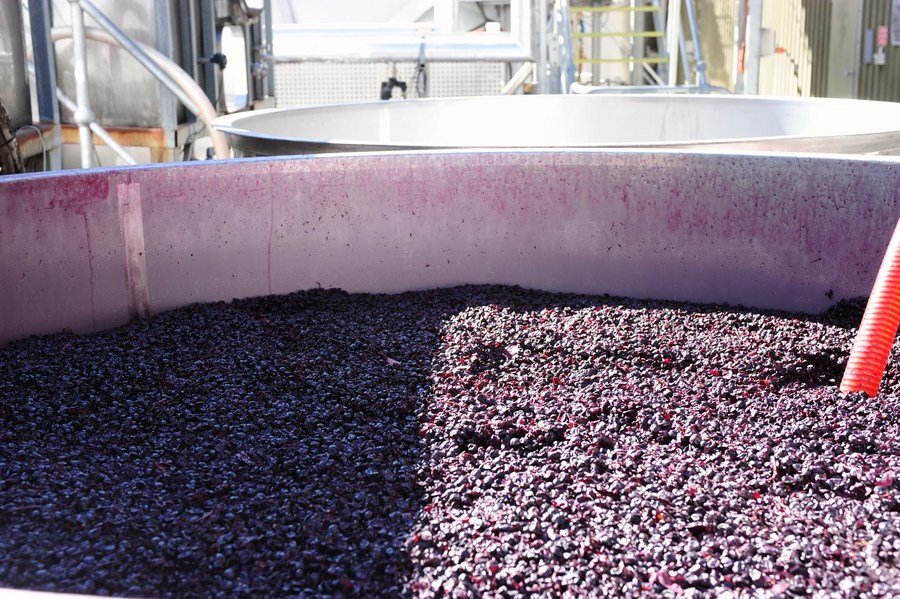
Kym Teusner, a winery owner, checks the wine's ageing process in Barossa Valley in South Australia (SA), Australia, March 12, 2024. (Xinhua/Zhang Jianhua)
Kym Teusner, a winery owner, is optimistic about the Chinese market, citing existing purchase orders and the suitability of Barossa Valley wines for diverse Chinese tastes.
ADELAIDE, Australia, April 2 (Xinhua) -- When Kym Teusner loaded the first shipment of Teusner Wines to Beijing in 2006 to tap the Chinese market, he did not think that his brands would become highly sought after among wine critics who were looking for small production but very high-quality Barossa producers in one of Australia's oldest wine regions in Adelaide.
Teusner has been producing wines under the Teusner brand for 20 years in the Barossa Valley, one of the world's great wine-producing areas in South Australia, since 2002.
Emerging from a very small winery 22 years ago to focus heavily on old wine fruits from vineyards that were up to 130 years of age, Teusner Wines grew rapidly over the past decade, with the annual production capacity of about 3,000 tons and a very strong global reputation, Teusner told Xinhua.

Kym Teusner, a winery owner, works at his winery in Barossa Valley in South Australia (SA), Australia, March 12, 2024. (Xinhua/Zhang Jianhua)
China's Ministry of Commerce announced on Thursday that the country would lift anti-dumping and anti-subsidy tariffs on Australian wine from Friday.
Australia's wine exports to China were worth 1.1 billion Australian dollars (some 713 million U.S. dollars) in 2019. Prime Minister Anthony Albanese said in the wine region of Hunter Valley in the north of Sydney on Thursday that the resumption of trade will see an even higher amount.
The wine industry employs hundreds of thousands of people if tourism and other industries were considered, Albanese said, adding, "Trade is about Australian jobs."
"We already have purchase orders in the system from our past customers, so we are very confident that people quickly want to have our wine back into China," said Teusner who has about 200 hectors of vineyards now.
"I'm pretty excited about the next few years," he said, adding the Barossa Valley is a very diverse place that allows winemaking to suit different parts of China, as the Chinese market is diverse too.
Teusner said the Barossa Valley is much warmer, and has a much more stable climate, so the grapes are much riper, which means wines are much richer, much more concentrated, and much more flavorsome.

This photo taken on March 12, 2024 shows crushed grapes for ferment in a container at a winery in Barossa Valley in South Australia (SA), Australia. (Xinhua/Zhang Jianhua)
Fiona Yao, sales manager of Teusner Wines export, was one of the first Chinese people to enter the Australian wine industry in Barossa Valley 15 years ago.
Yao said the aroma, taste and character of Australian red wines have gained increasing popularity in the Chinese market in recent years.
"Most wineries are very eager to return to the Chinese market," she said.




 A single purchase
A single purchase









